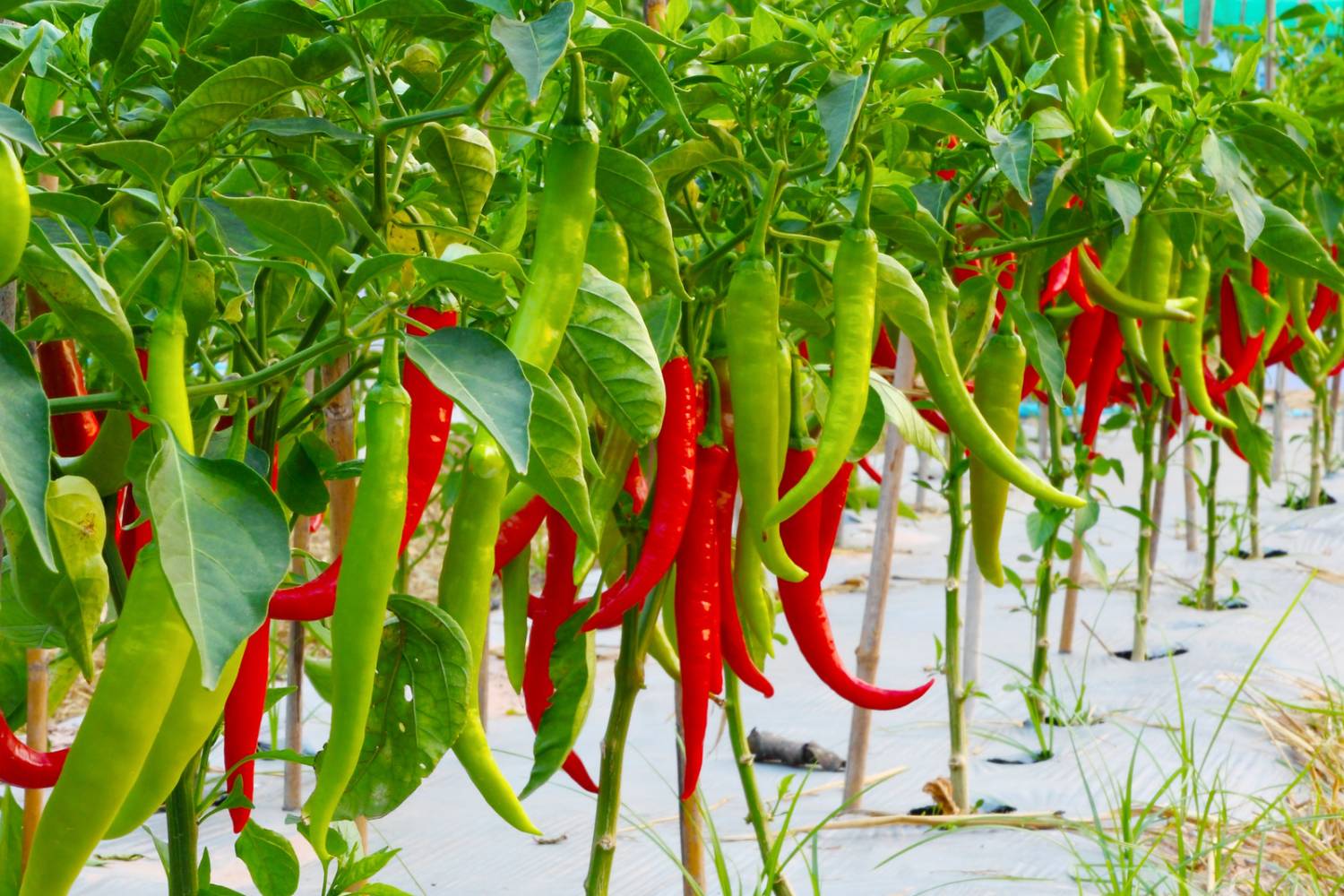Best Fertilizers for Peppers: Increase Growth and Taste Naturally
Best Fertilizers for Peppers: Increase Growth and Taste Naturally
Blog Article
Organic Vs. Synthetic Fertilizers: Which Is Best for Nurturing Healthy And Balanced Pepper Plants?
In the realm of supporting healthy pepper plants, the choice between artificial and natural plant foods stands as a pivotal decision with significant implications. While both alternatives goal to offer important nutrients to support plant growth, the nuances of their impact on the dirt, plant health, and the atmosphere spark a debate that echoes throughout the horticulture area. Comprehending the distinctive benefits and potential risks of each fertilizer type is critical for pepper cultivators seeking to optimize their returns while keeping a lasting and eco-conscious technique.
Advantages of Organic Fertilizers
Organic fertilizers use an environmentally-friendly and lasting method to nourishing pepper plants, supplying necessary nutrients without making use of artificial chemicals. These natural fertilizers are originated from natural resources such as garden compost, manure, bone meal, and algae, advertising soil health and wellness and biodiversity. Unlike artificial fertilizers, natural alternatives release nutrients slowly, guaranteeing a steady and well balanced supply for pepper plants to grow.
One considerable advantage of organic plant foods is their capability to improve soil framework and water retention. By boosting dirt health, natural plant foods promote valuable microbial task, which assists in nutrient uptake by pepper plants. Furthermore, organic fertilizers reduce the risk of chemical run-off, safeguarding water resources from contamination and securing the atmosphere.
Additionally, organic fertilizers contribute to long-lasting soil fertility by promoting the growth of valuable soil microorganisms. These microorganisms assist damage down organic matter, releasing nutrients in a kind that is conveniently obtainable to pepper plants. best fertilizers for peppers. By cultivating a healthy soil ecosystem, organic fertilizers sustain sustainable pepper growing practices that benefit both plants and the environment
Downsides of Artificial Fertilizers
Synthetic fertilizers, in comparison to their natural equivalents, pose different drawbacks when made use of to nourish pepper plants, affecting both plant wellness and environmental sustainability. One significant drawback of synthetic fertilizers is their propensity to leach nutrients from the dirt swiftly.
Additionally, the overuse of synthetic fertilizers can contribute to water pollution. Excess plant foods not taken in by plants can remove into water bodies, leading to eutrophication, where algae flowers diminish oxygen levels in the water, harming water life. Synthetic plant foods are commonly obtained from non-renewable sources, such as fossil fuels, contributing to carbon exhausts and environmental degradation during their manufacturing.
Nutrient Absorption Contrast
When comparing synthetic and natural fertilizers in terms of nutrient absorption, natural fertilizers have the benefit of supplying a more balanced and slow-release resource of nutrients. Organic plant foods contain a variety of macro and trace elements that are not just valuable for the plants but additionally promote healthy dirt microbial task, which aids in nutrient uptake.
Additionally, natural plant foods boost soil structure and water retention capacity, permitting pepper plants to gain access to nutrients extra effectively. This better soil top quality assists in root growth, making it possible for much better nutrient absorption. Synthetic fertilizers, although initially enhancing plant development as a result of their high nutrient focus, may prevent lasting nutrient absorption by degrading soil health with time.
Ecological Influence Considerations

On the various other hand, artificial plant foods, although typically even more right away available and concentrated to plants, can have damaging impacts on the environment otherwise used correctly (best fertilizers for peppers). Their production needs high power inputs, resulting in greenhouse gas discharges and contributing to environment change. The drainage of excess artificial plant foods can infect water resources, leading to eutrophication and harming water ecosystems.
Finest Plant Food Practices for Peppers
When fertilizing pepper plants, enhancing nutrient uptake and reducing environmental effect are vital factors to consider. To achieve this, it is important to follow finest fertilizer practices tailored to the particular needs of pepper plants. One critical technique is to do a dirt examination prior to using try this web-site any fertilizers. This examination can figure out the pH degree of the dirt and determine any type of nutrient shortages, leading you in picking one of the most appropriate fertilizer solution.
Another crucial method is to fertilize pepper plants at the ideal time. Normally, peppers take advantage of obtaining plant food at growing and then once more when they start to flower. Over-fertilizing can result in nutrition discrepancies and hurt the plants, so it is crucial to comply with advised application prices.
Additionally, choosing a balanced fertilizer with an NPK ratio that matches pepper plants' needs is basic. Ultimately, combining synthetic and organic plant foods judiciously can assist support healthy and balanced pepper plants while decreasing environmental influence.
Verdict

Organic plant Get More Information foods offer an environmentally-friendly and sustainable approach to nourishing pepper plants, giving necessary nutrients without the use of artificial chemicals. Unlike synthetic plant foods, organic options release nutrients gradually, guaranteeing a well balanced and stable supply for pepper plants to flourish.
Artificial fertilizers, in comparison to their organic equivalents, position numerous drawbacks when made use of to nurture pepper plants, impacting both plant health and environmental sustainability. When comparing natural and synthetic plant foods in terms of nutrient absorption, natural plant foods have the benefit of providing an extra well balanced and slow-release resource of nutrients.Additionally, natural plant foods boost dirt structure and water retention capability, allowing pepper plants to gain access to nutrients a lot more effectively.
Report this page